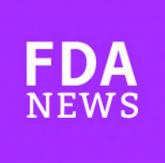News


AT 2015 ASCO ANNUAL MEETING
CHICAGO – Nivolumab reduced the risk of death by nearly a third over docetaxel for patients with advanced, refractory nonsquamous non–small cell lung cancer, results of CheckMate 057 showed.
The primary endpoint of median overall survival was 12.2 months for those receiving the PD-1 immune checkpoint inhibitor nivolumab and 9.4 months for those given docetaxel (hazard ratio, 0.73; P = .0015), study author Dr. Luis Paz-Ares reported at the annual meeting of the American Society of Clinical Oncology.
At 1 year, 51% of the nivolumab (Opdivo) group were alive vs. 39% of the docetaxel (Taxotere) group.
The survival advantage was seen across most subgroups, except never smokers and those whose tumors were positive for epidermal growth factor receptor (EGFR) mutations.
The magnitude of the overall survival benefit in patients with PD-L1–positive tumors, however, was “unprecedented in this setting” and ranged from 17.2 months to 19.4 months, Dr. Paz-Ares of the Hospital Universitario Virgen Del Rocio, Seville, Spain, said.
Treatment options for patients with nonsquamous histology who progress following platinum-based doublet chemotherapy are limited. Typical response rates in this context are about 10%, and median overall survival is about 8-10 months, he said.
Discussant Dr. Roy Herbst, chief of medical oncology at Yale Comprehensive Cancer Center in New Haven, Conn., said, “This is a positive randomized phase III trial with a primary endpoint for all comers. The trial sets a new standard for the treatment of previously treated disease … and nivolumab is significantly less toxic than docetaxel.”
Check Mate 057 randomly assigned 292 patients to nivolumab 3 mg/kg every 2 weeks and 290 patients to docetaxel 75 mg/kg every 3 weeks until disease progression or unacceptable toxicity occurred. Patients were stratified by prior maintenance therapy and line of therapy. PD-L1 expression was measured in pretreatment (archival or recent) tumor biopsies.
The objective response rate was significantly higher for patients receiving nivolumab than docetaxel (19% vs. 12%; P = .0246; odds ratio, 1.72), Dr. Paz-Ares said.
Most responses were partial (18% vs. 12%), with only one complete response to nivolumab. The median duration of response was 17.2 months with nivolumab vs. 5.6 months with docetaxel.
Progression-free survival (PFS) was similar between the nivolumab and docetaxel groups (2.3 months vs. 4.2 months; HR, 0.92; P = .39), he said, explaining that progression was more rapid with nivolumab during the first 6 months before slowing to a 1-year PFS rate of 19% vs. 8% for docetaxel.
PD-L1 expression emerged as a significant predictor of objective response rate, PFS, and overall survival, with objective response rates as much as three times higher with nivolumab than docetaxel for patients with high PD-L1 expression, Dr. Paz-Ares said.
Using three predefined cut points of ≥1%, ≥5%, and ≥10% PD-L1 expression, overall survival was 17.2 months, 18.2 months, and 19.4 months with nivolumab vs. 9.0 months, 8.1 months, and 8 months with docetaxel, respectively.
Dr. Herbst described the PD-L1 biomarker as intriguing, but said for now it is only hypothesis generating and should not be used for patient selection. PD-L1 expression was not prospectively stratified in the study, and was not available for 22% of patients, and while it does improve objective response rate, PFS, and overall survival, even patients with less than 1% expression appear to have at least equal activity to that of docetaxel with less toxicity, he noted.
Adverse events of any grade were reported in 69% of patients receiving nivolumab and 88% receiving docetaxel. More importantly, grade 3-4 events occurred in 10% vs. 54%, Dr. Paz-Ares said. The most common events with nivolumab were fatigue, nausea, and decreased appetite.
Notably, the dose intensity delivered was higher for nivolumab than for docetaxel (83% vs. 66%), and 42% of nivolumab patients vs. 50% of docetaxel patients received subsequent systemic therapy, suggesting little influence of further treatment on survival.
In a separate presentation at ASCO, nivolumab reduced the risk of death by 41%, compared with docetaxel, in previously treated advanced squamous NSCLC (HR, 0.59; P = .00025) in the phase III Check Mate 017 study.
Nivolumab received a second indication in March 2015 for use in metastatic squamous NSCLC following failure with platinum-based chemotherapy
Bristol-Myers Squibb sponsored the study. Dr. Paz-Ares reported honoraria from Bristol-Myers Squibb, Roche/Genentech, Lilly, Pfizer, Boehringer, and Clovis. Dr. Herbst reported honoraria from Boehringer Ingelheim, Celgene, Lilly, Merck, NovaRx, and Pfizer; a consulting or advisory role with Biothera, DiaTech Oncology, Koltan Pharmaceuticals, N-of-One, and Quintiles; and research funding from Genentech/Roche and GlaxoSmithKline.
On Twitter @pwendl

